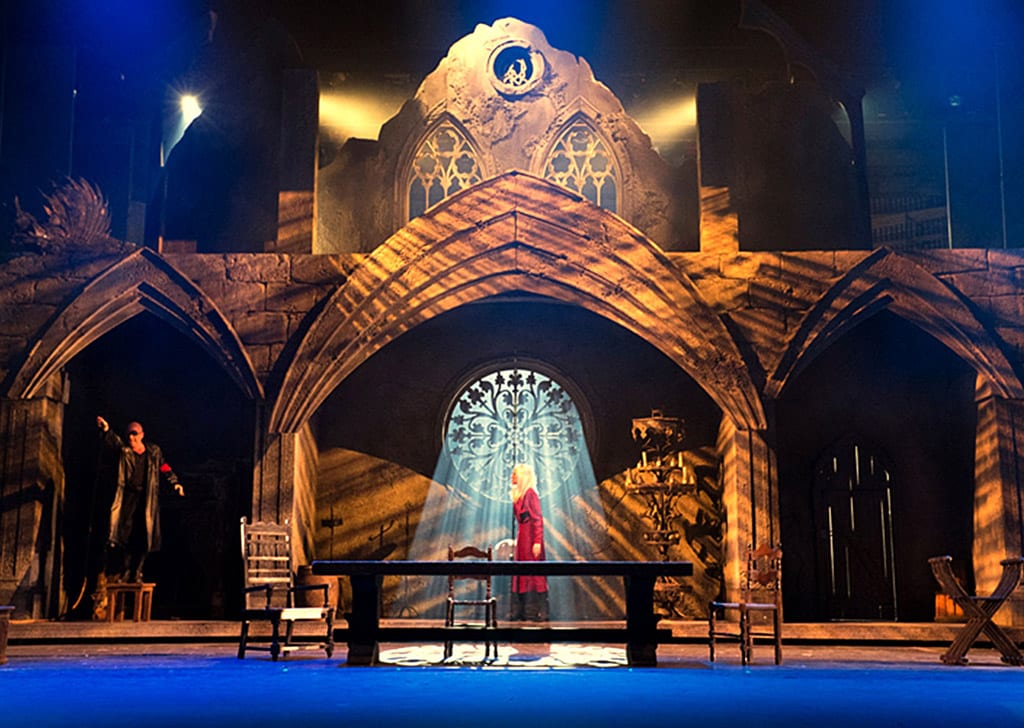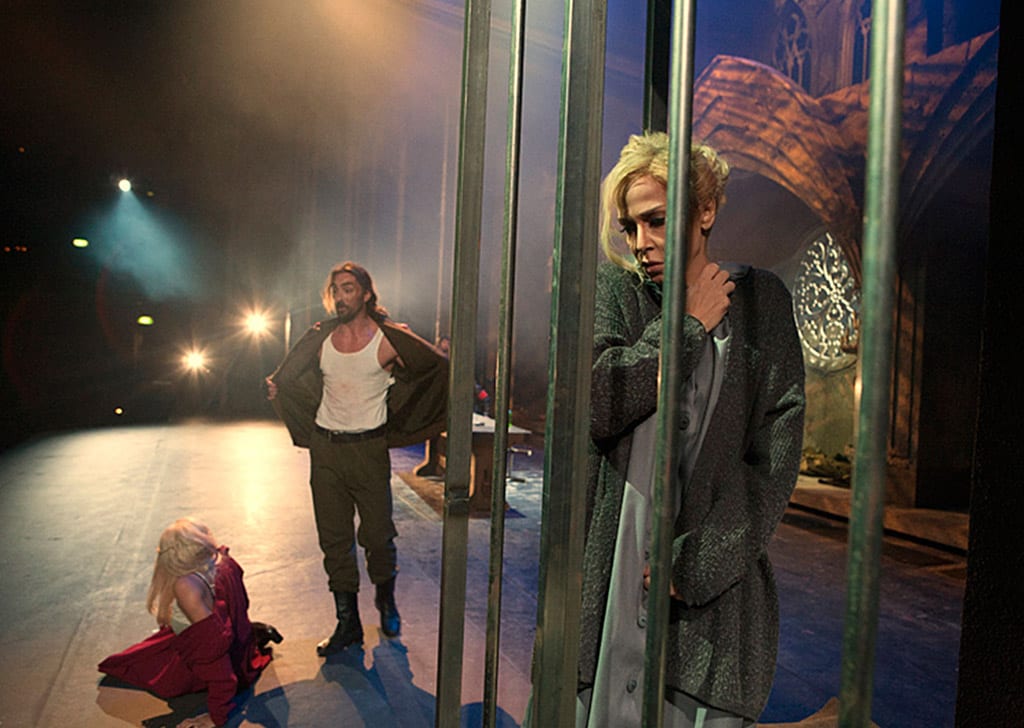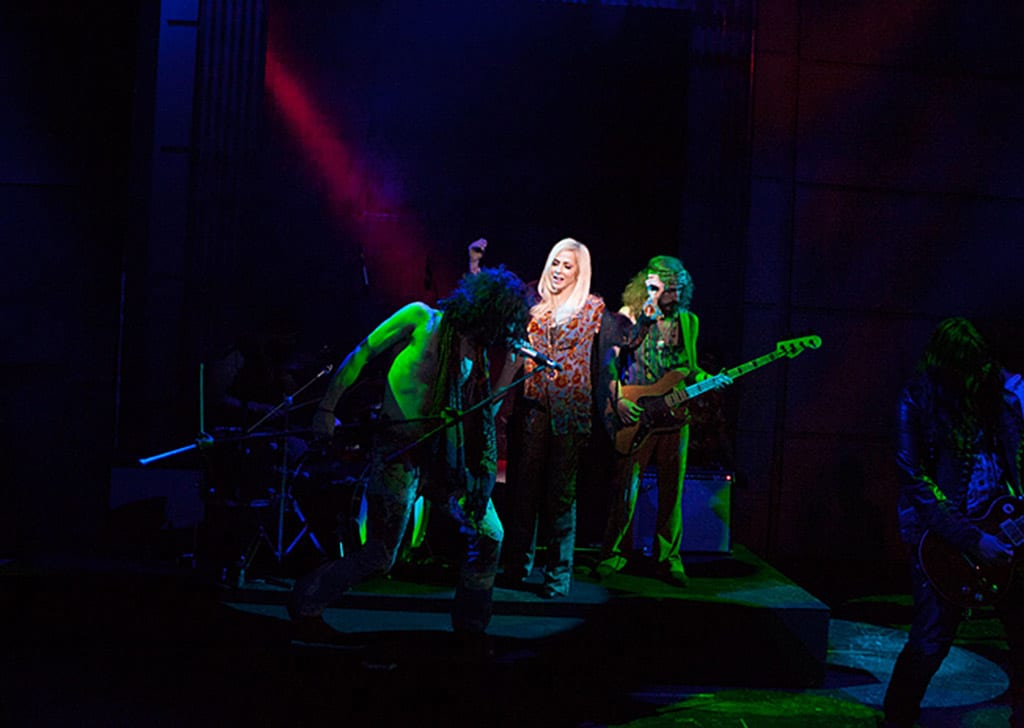If there is one mainstream show at the moment in Athens, one that would attract wider audiences – for a number of reasons not necessarily related to their love for the theatre – this must be The Edelweiss Bells. This is a new rock opera, written by controversial pop songwriter Nikos Karvelas; starring number one Greek pop idol for decades, Anna Vissi (Karvelas’ ex-wife and life long muse); staged at a large, glamorous venue, previously being a night club. These are enough reasons for the show to be snubbed by hard core theatregoers; however, if you ignore the lifestyle aura that surrounds it, The Edelweiss Bells is a strong show, whose impact stays with you long after the enthusiastic applause at the end.
The Edelweiss Bells is the third rock opera written and composed by Karvelas, Vissi always being in the leading role. This is a dark show throughout (with inescapable echoes of Greek tragedy), featuring shocking scenes of rape, drug use, violent murder, even incestuous pedophilia. Starting in media res, it narrates the sad story of Anna Orlando: her unhappy marriage to violent Werner, her rape by three men before his eyes, her new life in America and the love that she unknowingly finds in the arms of her own son.
Kakleas creates an atmospheric production, aided by Manolis Pantelidakis’ inspired set and Christos Tziogas’ submisssive light design. Presenting a number of dark, explicit scenes in a way that they do not lose their impact, nor flirt with the ridiculous or appall the audience, is probably the most challenging part of staging Karvellas’ play. Kakleas beautifully makes the most of those ugly scenes that become hauntingly powerful and memorable, like a kick in the guts.
The show features a live orchestra and a selected 25-member cast – again, not an easy endeavour in a country with no tradition in musical theatre. Anna Vissi’s magical, expressive voice and her decades-long experience in performing before large audiences (although mostly as a pop singer) counterbalance her slightly insufficient acting skills. Yannis Samsiaris is sturdy as violent Werner, dominating the stage in every scene he is in. Stamatakis’ performance as Anna’s son and lover is mature and meaty, despite the fact that this is his very first appearance onstage. Tania Trypi is expectedly stunning; Thanassis Alevras in a singing role is a pleasant surprise.
The Edelweiss Bells is exactly what it promises to be: a well-orchestrated, spectacular musical play, featuring a very good cast; not exactly a family play (it is suitable only for 17 years and over) and not the best choice for those seeking the intimate atmosphere of a small venue, or the depth of prose. Applying prejudicial labels, though, (that is, judging it on the grounds of the composer’s background in pop music, or on the grounds of the numerous celebrities that invaded the stalls in the premiere), is not only unfair – it is simply foolish.



